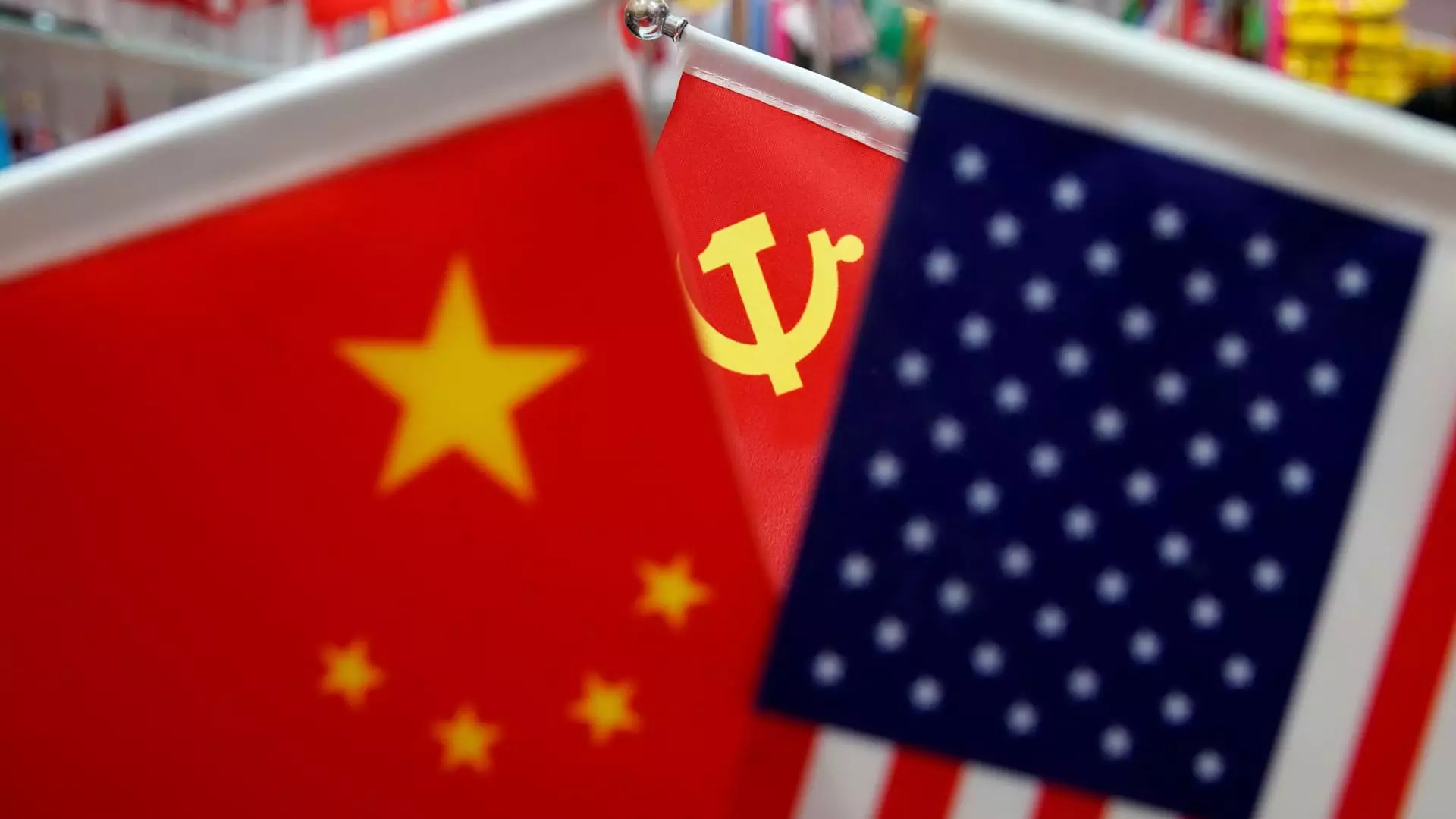The ongoing trade tensions between the United States and China reveal a significant fracture in the global political landscape. A recent exchange between President Donald Trump and Chinese President Xi Jinping highlights just how difficult it is to navigate this deeply entrenched stalemate. Trump’s admission that it is “extremely hard” to strike a deal with Xi encapsulates the grim reality of international relations today. This disconcerting phase is not merely a matter of diplomatic niceties; it underlines a more consequential narrative about power dynamics and economic self-interest that permeates the relationship between these two superpowers.
As Trump grapples with stalled negotiations, it becomes clear that the United States is not merely dealing with a negotiating partner but with a strategic competitor that is not easily swayed. Scott Bessent, the U.S. Treasury Secretary, characterized the talks as “a bit stalled,” reflecting a growing consensus that the prospect for amicable resolution is diminishing. Such admissions raise pressing questions: Are we ready to confront what this means for global trade, and should we be alarmed by this disunity? The truth is, a fractured relationship with China—the world’s largest economy—holds potential peril for the future of global trade and diplomacy.
Negotiation by Twitter: The New Normal
In an unconventional turn of events, Trump’s method of diplomacy increasingly resembles a game of social media chess. His interaction with Xi is publicly played out on platforms like Truth Social, where he unabashedly confesses to a struggle in negotiations. This begs the question: can constructive diplomacy thrive in a Twitter-fueled atmosphere? When leaders of world powers revert to digital sound bites rather than substantive discussions, it trivializes what should be earnest negotiations. The national and global ramifications are too significant to be left in the hands of the social media gods.
Trump’s statements signal more than mere frustration; they suggest a lack of unified strategy in approaching complex issues like trade and technology restrictions. While stating his admiration for Xi, he simultaneously underscores the difficulties in cutting deals with a leader of China’s stature. This duality reflects a dilemma central to U.S.-China relations: the balance between expressing respect and recognizing realpolitik. When the stakes are high, as they are in negotiations concerning technology and tariffs, one must wonder if respect can indeed coexist with healthy skepticism.
The Broken Promises of Past Agreements
The backstory of trade agreements between the U.S. and China is marred by unfulfilled promises. Both nations blame each other for violations, shedding light on a foundational mistrust that undermines any potential cooperation. The May 12 agreement, intended as a pause in the escalating trade war, has unraveled, with both sides signaling disappointment more than commitment to long-term solutions. China’s failure to alleviate restrictions on critical rare earth exports defies Washington’s anticipation, hinting at deeper strategic considerations that the U.S. might be ill-prepared to navigate.
It’s important not to overlook the significant implications of these actions. If China continues to perceive itself as a victim of unfair treatment from the U.S.—fueled by the revocation of visas for Chinese students or concerns over technology access—then trust will be an illusion. The interdependency in trade and technology should motivate collaboration, but instead, it appears to have catalyzed a divide. For a diplomatic relationship that has the potential to shape the future, such a divide is not just unhealthy; it’s fatal.
Your Move, Mr. President
As global citizens, we must ask ourselves: is the current trajectory sustainable? While Trump has stated his desire for dialogue with Xi, one cannot ignore the underlying tension that precedes any potential conversational overture. Observers note that China might only agree to talks under conditions of stability and predictability. The reality is stark: conversations hinged on uncertainty breed more distrust. The key question remains operational—will the U.S. lead or follow in this new landscape of geopolitics?
With the complexities of trade policy now laid bare, an invitation looms for both nations. A genuine commitment to discuss issues beyond tariffs—such as climate change, human rights, and mutual growth—could forge a more productive relationship. Therefore, in the age of digital dialogues and extensive media scrutiny, it is essential that both leaders reestablish sincerity in their discussions. If they fail to do so, the consequences of their inaction may ripple globally, reverberating through economies that base their futures on a U.S.-China alliance built on trust rather than trepidation.

